8th International Workshop on Magnetic Particle Imaging
Hamburg, Germany | 2018, March 23 - 24
Thank you all for a great workshop IWMPI2018 with inspiring conversations, interesting talks and innovative posters. We hope you all returned back home safe and sound with plenty of new ideas.
The 8th IWMPI took place at the University Medical Center Hamburg Eppendorf (UKE), Germany on March 22 - 24, 2018.
Scientific Program
Thursday, March 22, 2018 | |
|---|---|
| 10:00 | Tutorials |
| 12:30 | DGBMT Fachausschusssitzung Magnetische Methoden in der Medizin - Lecture Hall |
| 12:30 | Welcome Reception |
| 13:30 | Opening |
| 13:45 | Keynote - Lawrence L. Wald: Assessing MPI as a functional brain imaging modality |
| 14:15 | S01 - Tracer Synthesis and Characterization I |
| Chairs: Silvio Dutz (Germany), Lutz Trahms (Germany) | |
| T01 | Synthesis and Characterisation of Zn0.1Co0.9Fe2O4 Nurcan Dogan, Gebze Technical University, Kocaeli, Turkey |
| T02 | Response of suspensions of microfabricated magnetic discs to time varying fields |
| T03 | Evaluation of magnetic particle imaging using blood-pooling magnetic nanoparticles Yasushi Takemura, Yokohama National University, Japan |
| T04 | Magnetic Fractionation of Resovist® Nanoparticles for Magnetic Particle Imaging Takashi Yoshida, Kyushu University, Fukuoka, Japan |
| 15:15 | S02 - Tracer Synthesis and Characterization II (Poster and Coffee) |
| P01 | synomag® Nanoflower Particles: A new Tracer for MPI, Physical Characterization and initial in vitro Toxicity Studies Cordula Grüttner, micromod Partikeltechnologie GmbH, Rostock, Germany |
| P02 | Differential magnetometry on Fe2O3 nano-clustered particles Leon Abelmann, KIST Europe, Germany |
| P03 | Continuous-Flow Synthesis of Superparamagnetic Iron Oxide Nanoparticles Jan Magonov, University of Luebeck, Institute of Medical Engineering, Luebeck, Germany |
| P04 | Synthesis of Super-paramagnetic Iron Oxides Nanoparticles Subjected to Magnetic Fields Ankit Malhotra, Institute of Medical Engineering, University of Lübeck, Lübeck, Germany |
| P05 | Comparison of Superparamagnetic Quantifier and Magnetic Particle Spectroscopy Melissa van de Loosdrecht, Magnetic Detection and Imaging group, Faculty of Science and Technology, University of Twente, Enschede, the Netherlands |
| P06 | From MPI tracer materials to target-specific in vivo diagnostics David Heinke, nanoPET Pharma GmbH, Berlin, Germany |
| P07 | Biocompatible Magnetic Fluids of Modified Co-Ferrite Nanoparticles with Tunable Magnetic Properties Silvio Dutz, Institute of Biomedical Engineering and Informatics, Technische Universität Ilmenau, Ilmenau, Germany |
| P08 | Preservation Procedures for Protein-coated Magnetic Nanoparticles and their Interaction with Biological Systems Silvio Dutz, Institute of Biomedical Engineering and Informatics, Technische Universität Ilmenau, Ilmenau, Germany |
| P09 | New MPI Tracer Material – A Resolution Study Christina Debbeler, Institute of Medical Engineering, University of Lübeck, Lübeck, Germany |
| 15:15 | S03 - Reconstruction I (Poster and Coffee) |
| P10 | A comparison of image-based system matrices Thomas Kampf, University Hospital Würzburg, Würzburg, Germany |
| P11 | On the Formulation of the Magnetic Particle Imaging System Function in Fourier Space Marco Maass, Institute for Signal Processing, University of Lübeck, Lübeck, Germany |
| P12 | Spectral filtering for Chebyshev reconstruction algorithms in Magnetic Particle Imaging: a case study for reconstruction on Lissajous nodes Francesco Marchetti, Department of Women’s and Children’s Health, University of Padova, Italy |
| P13 | An Alternative X-space Based Image Reconstruction without Partial FOV Processing Semih Kurt, Bilkent University, Ankara, Turkey |
| P14 | Joint Multiresolution Magnetic Particle Imaging and System Matrix Compression Marco Maass, Instiute for Signal Processing, University of Lübeck, Lübeck, Germany |
| P15 | Influence of Excitation Signal Coupling on Reconstructed Images in MPI Anselm von Gladiss, Institute of Medical Engineering, University of Lübeck, Lübeck, Germany |
| P16 | Deconvolution Kernel for 1D X-Space MPI Aileen Cordes, Institute of Medical Engineering, University of Lübeck, Lübeck, Germany |
| P17 | Reusing System Matrices of Patches in Magnetic Particle Imaging via Mirroring Mandy Ahlborg, Institute of Medical Engineering, University of Lübeck, Lübeck, Germany |
| P18 | Improving generalization properties of measured system matrices by using regularized total least squares reconstruction in MPI Janna Flötotto, Center for Industrial Mathematics, University of Bremen, Bremen, Germany |
| P19 | Temporal Polyrigid Registration for Patch-based MPI Reconstruction of Moving Objects Jan Ehrhardt, Universität zu Lübeck, Lübeck, Germany |
| 16:30 | S04 - Methods I |
| Chairs: Bennie ten Haken (Netherlands), Yasushi Takemura (Japan) | |
| T05 | Image projection estimation in MPI using projected system matrices Jochen Franke, Bruker BioSpin MRI GmbH, Ettlingen, Germany; Physics of Molecular Imaging Systems, University RWTH Aachen, Germany |
| T06 | Fast Multi-Resolution Imaging using Adaptive Feature Detection Nadine Gdaniec, Section for Biomedical Imaging, University Medical Center Hamburg-Eppendorf and Institute for Biomedical Imaging, Hamburg University of Technology |
| T07 | Fast System Calibration for MPI Using a Rotating Coded Calibration Scene Serhat Ilbey, ASELSAN Research Center, 06370 Ankara, Turkey |
| T08 | Spatial Resolution in MPI: The Role of Phase Hoda Bagheri, SFU, Burnaby, Canada |
| T09 | Ghost Correction for Multi-Parameter MPI Michael Herbst, Bruker BioSpin MRI GmbH, Ettlingen, Germany |
| T10 | On the determination of the sensitivity in magnetic particle imaging Matthias Gräser, University Medical Center Hamburg-Eppendorf |
| 18:00 | Get together |
Friday, March 23, 2018 (morning) | |
|---|---|
| 09:00 | S05 - Instrumentation I |
| Chairs: Alexey Tonyushkin (USA), Hui Hui (China) | |
| T11 | Improved Receive Hardware Unit for Magnetic Particle Imaging Hendrik Paysen, Physikalisch-Technische Bundesanstalt, Berlin, Germany |
| T12 | Adaptive hardware lens for Traveling Wave MPI |
| T13 | An Approach for Actively Cancelling Direct Feedthrough Jonas Beuke, Institute of Medical Engineering, University of Lübeck, Lübeck, Germany |
| T14 | MPI meets CT: first hybrid scanner design |
| T15 | A Receive Coil Topology Based on Oppositely Tilted Solenoids for a Predefined Drive Field Jan Stelzner, Institute of Medical Engineering, University of Lübeck, Lübeck, Germany |
| T16 | MPI Scanner with Rotating Permanent Magnets Ulrich Heinen, Hochschule Pforzheim, Pforzheim, Deutschland |
| 10:30 | S06 - Applications I (Poster and Coffee) |
| P20 | Effect of Agarose gel pore size on SPIO MPI Signal strength Matthias Stoeckmann, University Medical Center Hamburg-Eppendorf, Hamburg, Germany |
| P21 | MPI Arthrography – Proof of Concept in a Phantom Study Stefan Herz, Universitätsklinikum Würzburg, Germany |
| P22 | MPI based 4D flow estimation – a simulation study Jochen Franke, Bruker BioSpin MRI GmbH, Ettlingen, Germany; Physics of Molecular Imaging Systems, University RWTH Aachen, Germany |
| P23 | Incorporation of Superparamagnetic Iron Oxide Nanoparticles into Erythrocytes for MPI Kristin Müller, University of Luebeck, Institute of Medical Engineering, Luebeck, Germany |
| P24 | Fluorescence Labeled MPI Tracer as a Visualization Tool for Different Cell Types Kerstin Lüdtke-Buzug, University of Luebeck, Institute of Medical Engineering, Luebeck, Germany |
| P25 | Adaption of a system function for in-vivo media Olaf Kosch, Physikalisch-Technische Bundesanstalt, Berlin, Germany |
| P26 | Lateral Movement of a Helical Swimmer Induced by Rotating Focus Fields in a Preclinical MPI Scanner Anna Bakenecker, Institute of Medical Engineering, University of Lübeck, Lübeck, Germany |
| P27 | Towards the visualization of biohybrid implants with MPI: SPION infused PCL Henning Nilius, Physics of Molecular Imaging Systems, RWTH Aachen University, Aachen, Germany |
| P28 | Towards quantitative Flow Characterization of Fluids using Magnetic Particle Imaging Robert Siepmann, Physics of Molecular Imaging Systems, RWTH Aachen University, Aachen, Germany |
| P29 | Longterm stable ferrogels for magnetic particle imaging phantoms Lucas Wöckel, Institute of Biomedical Engineering and Informatics, Technische Universität Ilmenau, Ilmenau, Germany |
| P30 | Towards Standardized MPI Measurements Patryk Szwargulski, Section for Biomedical Imaging, University Medical Center Hamburg-Eppendorf, Hamburg, Germany |
| P31 | Evaluation of different SPIONs for their potential as MPI-tracers Stefan Lyer, Universitätsklinikum Erlangen, ENT-Department, Section of Experimental Oncology and Nanomedicine (SEON), Else-Kröner-Fresenius Stiftung-Professorship, Erlangen, Germany |
| 10:30 | S07 - Instrumentation II (Poster and Coffee) |
| P32 | Excitation and Receive Unit for a Rotating Permanent Magnet Based FFL MPI System Jonas Beuke, Institute of Medical Engineering, University of Lübeck, Lübeck, Germany |
| P33 | An Acoustic Magnetic Particle Spectrometer Eric Aderhold, University of Lübeck, Germany |
| P34 | iMPI – inverted Magnetic Particle Imaging Fabian Piekarek, University of Würzburg, Würzburg, Germany |
| P35 | Hybrid Gradiometer Design for Traveling Wave Magnetic Particle Imaging Patrick Vogel, University of Würzburg, Würzburg, Germany |
| P36 | WOTAN – low cost ultra small formfactor console for Magnetic Particle Imaging |
| P37 | Finite Element Analysis of Passive Magnetic Shields for a FFP MPI Scanner Dilek M. Yalcinkaya, Department of Electrical and Electronics Engineering, Bilkent University, Ankara, Turkey |
| 11:30 | S08 - Reconstruction II |
| Chairs: Liu Wenzhong (China), Volkmar Schulz (Germany) | |
| T17 | Exploiting ill-posedness in magnetic particle imaging - system matrix approximation via randomized SVD Tobias Kluth, Center for Industrial Mathematics, University of Bremen, Bremen, Germany |
| T18 | MPI reconstruction using structural prior information and sparsity Christine Bathke, Center for Industrial Mathematics, University of Bremen, Bremen, Germany |
| T19 | Direct Reconstruction of Lissajous MPI Data using Chebyshev Compressed System Matrices Martin Möddel, University Medical Center Hamburg-Eppendorf, Hamburg, Germany |
| T20 | A Generalized Reconstruction Technique for Non-Cartesian X-Space MPI Ali Alper Ozaslan, Bilkent University, Ankara, Turkey |
| T21 | Influence Of A Changing Tracer Distribution To Joint Image And Background Reconstruction Marcel Straub, RWTH Aachen University, Aachen, Germany |
| T22 | Reconstruction of an object moved continuously through the Field of View in MPI Patryk Szwargulski, Section for Biomedical Imaging, University Medical Center Hamburg-Eppendorf, Hamburg, Germany |
| 13:00 | Group Photo |
| 13:15 | Lunch Break |
Friday, March 23, 2018 (afternoon) | |
|---|---|
| 14:00 | S09 - Applications II |
| Chairs: Mauro Magnani (Italy), Jörg Barkhausen (Germany) | |
| T23 | Temperature dependence of MPI spectra James Wells, Physikalisch-Technische Bundesanstalt, Berlin, Germany |
| T24 | Spatial and temperature resolutions of magnetic nanoparticle temperature imaging with a scanning magnetic particle spectrometer |
| T25 | Influence of magnetic nanoparticle mobility on the harmonic response studied by Magnetic Particle Spectroscopy Sebastian Draack, TU Braunschweig, Braunschweig, Deutschland |
| T26 | Relaxation-Based Calibration-Free Multi-Color MPI for Field Free Line Scanners |
| T27 | Characterization of single-core magnetic nanoparticles as tracer for mobility MPI Frank Ludwig, Institut für Elektrische Messtechnik und Grundlagen der Elektrotechnik, TU Braunschweig, Braunschweig, Germany |
| T28 | Viscosity Mapping through Relaxation Effects for Functional Magnetic Particle Imaging Mustafa Utkur, Bilkent University, Ankara, Turkey |
| T29 | Discriminating nanoparticle size using multispectral MPI Martin Möddel, University Medical Center Hamburg-Eppendorf, Hamburg, Germany |
| 15:30 | S10 - Instrumentation III (Poster and Coffee) |
| P38 | Preliminary Design of Hybrid of Magnetic Particle imaging and Optical Multimodality imaging System for Small Animals Hui Hui, Institute of Automation, Beijing, China |
| P39 | Analysis and Comparison of Magnetic Fields in MPI using Spherical Harmonic Expansions Marija Boberg, University Medical Center Hamburg-Eppendorf, Hamburg, Germany |
| P40 | A Method of Optimizing Transmit Coils for Magnetic Particle Spectrometer Xin Chen, Institute of Medical Engineering, University of Lübeck, Lübeck, Germany |
| P41 | Design, Simulation and Construction of a Symmetrical Transmission Filter for MPI Huimin Wei, Institute of Medical Engineering, University of Lübeck, Lübeck, Germany |
| P42 | Passive and Active Compensation of Drive Field Feed-Through for Multi-Frequency MPI Dennis Pantke, Department of Physics of Molecular Imaging, Institute for Experimental Molecular Imaging, RWTH Aachen University, Aachen, Germany |
| P43 | A hand-held single-sided explorer for magnetic particle spectroscopy Florian Fidler, Department of Experimental Physics 5, University of Würzburg, Würzburg, Germany |
| P44 | Complex Susceptibility Imaging of Magnetic Nanoparticles Wenzhong Liu, Huazhong University of Science and Technology, Wuhan 430074, China |
| P45 | Design of a Switched-Capacitor Array for High-Power Applications with Dense Coverage of Medium Frequency-Range André Behrends, Institute of Medical Engineering, University of Lübeck, Lübeck, Germany |
| P46 | Comparison of Extracellular and Intracellular Magnetic Hyperthermia Treatments Using Magnetic Particle Imaging Kenya Murase, Osaka University Graduate School of Medicine, Suita, Osaka, Japan |
| P47 | Quantitative Assessment of Pulmonary Mucociliary Transport Using Magnetic Particle Imaging: Effect of Surface Potential of Magnetic Nanoparticles Kenya Murase, Osaka University Graduate School of Medicine, Suita, Osaka, Japan |
| P48 | Optimization of Tri-Modal Imaging Protocol for Comparison of Various SPIO Nanoparticles: Initial Approach Based on Subcutaneous Application in Mice Pavla Francová, Center for Advanced Preclinical Imaging, 1st Medical Faculty, Charles University, Prague, Czech Republic |
| 16:15 | Quo Vadis - IJMPI |
| T30 | Note by the Editor in Chief |
| 16:30 | S11 - Applications III |
| Chairs: Lawrence Wald (USA), Ludek Sefc (Czech Republic) | |
| T31 | Noninvasive detection and dynamic quantification of gastrointestinal bleeding with Magnetic Particle Imaging Daniel Hensley, University of California, Berkeley, Berkeley, USA |
| T32 | First temperature measurements of endovascular stents in MPI |
| T33 | Exploiting Magnetic Relaxation in Magnetic Particle Imaging: First In Vivo Color MPI Results Daniel Hensley, University of California, Berkeley, Berkeley, USA and Magnetic Insight, Inc., Alameda USA |
| T34 | Visualization of spatial and temporal temperature distributions in a liver tumor ablation model using Magnetic Particle Imaging Johannes Martin Salamon, Department of Diagnostic and Interventional Radiology and Nuclear Medicine, University Medical Center Hamburg-Eppendorf, Hamburg, Germany |
| 17:30 | S12 -Survey on Applications |
| Chairs: Thorsten Buzug (Germany), Tobias Knopp (Germany) | |
| T35 | Presentation and discussion of the results on the MPI application survey |
| 18:00 | Social Event |
| Transfer to the habour, 18:30 boarding, Harbour cruise with dinner | |
Saturday, March 24, 2018 | |
|---|---|
| 09:00 | S13 - Instrumentation IV |
| Chairs: Takashi Yoshida (Japan), Volker Beer (Germany) | |
| T36 | Parallel Magnetic Particle Imaging Patrick Vogel, University of Würzburg, Würzburg, Germany |
| T37 | An MPI-Compatible HIFU Transducer: Experimental Evaluation of Interferences. |
| T38 | Permanent Magnet Selection Coils Design for Single-Sided Field-Free Line MPI Alexey Tonyushkin, University of Massachusetts Boston, Boston, USA |
| T39 | First Phantom Measurements with a 3D Single Sided MPI Scanner |
| T40 | First images from an atomic-magnetometry-based 1D and (hybrid) 2D MPI scanner Victor Lebedev, University of Fribourg, Fribourg, Switzerland |
| T41 | A Magnetic Particle Detector for Margin Assessment in Breast-Conserving Surgery Erica Mason, Harvard-MIT Health Sciences & Technology, Cambridge, USA |
| 10:30 | Poster and Coffee |
| 11:15 | S14 - Methods II |
| Chairs: Kenya Murase (Japan), Frank Ludwig (Germany) | |
| T42 | Metropolis Monte Carlo simulations of combined Néel and Brownian relaxation in superparamagnetic nanoparticles Anton Lord, Physics of Molecular Imaging (PMI), Institute of Experimental Molecular Imaging (ExMI) |
| T43 | Relaxation Modeling and First Harmonic Recovery in Magnetic Particle Imaging Volkmar Schulz, RWTH Aachen University, Aachen, Germany |
| T44 | Stochastic Simulations of Magnetic Particles: Comparison of Different Methods Alexander Neumann, Institute of Medical Engineering, University of Lübeck, Lübeck, Germany |
| T45 | Increasing the MPI Frame Rate by Excitation Signal Phase-Shifting and Receive-Signal Splitting Anselm von Gladiss, Institute of Medical Engineering, University of Lübeck, Lübeck, Germany |
| T46 | Stenosis Analysis by synergizing MPI and intravascular OCT Florian Griese, Section for Biomedical Imaging, University Medical Center Hamburg Eppendorf, Hamburg, Germany |
| 12:30 | Wrap up |
| 12:45 | Snack |
| 13:30 | Lab-Tour |
Sponsors
sponsors_grafiken
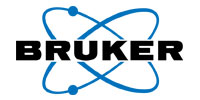












Details about Keynote and Tutorials
Lawrence L. Wald
Professor of Radiology, Harvard Medical School
Biophysicist, Massachusetts General Hospital
Director, MGH NMR Core, Martinos Center
Functional brain imaging has played an important role in recent advances in human neuroscience, allowing traditional psychology experiments to be carried out during non-invasive imaging sensitive to the metabolic or hemodynamic effects of brain activation. This has allowed human neuroscience to move from indirect measurements such as subject responses and reaction times to direct interrogation of the brain regions and circuits used in a task. The application of functional brain imaging has become so central to human neuroscience that most major psychology/neuroscience departments at US universities now operate an fMRI facility.
While fMRI is valued for its ability to noninvasively map the hemodynamic response to brain activation, its sensitivity is relatively low. Studies typically require repeated trials and are averaged across multiple subjects to achieve statistical significance. The consequence of low CNR extends beyond the inconvenience of averaging and missing subtle effects. It prevents fMRI from impacting clinical medicine where decisions must be made for an individual, not a group average. The ability to make statements about a brain circuit’s function or dysfunction in individuals could provide means of phenotyping spectrum diseases such as the major mental illnesses; a potential breakthrough for diagnosis and treatment.
MPI offers an attractive and potentially very sensitive compliment to fMRI. We propose using a similar hemodynamic contrast mechanism; the local Cerebral Blood Volume changes during activation. Since injected SPIONs do not cross the blood-brain barrier, the direct measure of SPION concentration provided by MPI is a measure of local CBV and CBV changes (~20% during brain activation) will be directly effected in a time-series of MPI images.

Lawrence L. Wald, Ph.D., is currently a Professor of Radiology at Harvard Medical School, Affiliated Faculty of the Harvard-MIT Division Health Sciences Technology and Sara & Charles Fabrikant Research Scholar at the Massachusetts General Hospital. He received a BA in Physics at Rice University, and a Ph.D. in Physics from the University of California at Berkeley in 1992 under the direction of Prof. E.L. Hahn with a thesis related to optical detection of NMR. He obtained further (postdoctoral) training in Physics at Berkeley and then in Radiology and MRI at the University of California at San Francisco (UCSF). He began his academic career as an Instructor at the Harvard Medical School and since 1998 has been at the Massachusetts General Hospital Dept. of Radiology A.A. Martinos Center for Biomedical Imaging.
His recent work focuses on improving methods for functional brain imaging. He has worked on the benefits and challenges of highly parallel MRI and its application to faster image encoding and parallel excitation and ultra-high field MRI (7 Tesla) methodology, and also improved method for studying the Human Connectome and portable MRI technology. Recent work has included studying the feasibility of functional brain imaging with Magnetic Particle Imaging (MPI) using Cerebral Blood Volume (CBV) contrast and analysis of the instrumentation needed for fMPI of humans. This has also led to extending understanding of Peripheral Nerve Stimulation (PNS) in human MPI and MRI using electromagnetic body models with full nerve atlases and a detailed neuro-dynamic model to predict magneto-stimulation thresholds. Dr. Wald is a Fellow of the International Society of Magnetic Resonance (ISMRM) and the College of Fellows of the American Institute for Medical and Biologial Engineering (AIMBE). He will serve as President of the ISMRM in 2019.
Tobias Knopp Section of Biomedical Imaging, UKE, Germany
MPI research groups worldwide have developed custom file formats for the storage of MPI raw data and calibration data. The Magnetic Particle Imaging Data Format (MDF) has been developed with the goal to standardize these efforts. It is very flexible and allows to describe data measured with spectroscopy systems and FFP / FFL based imaging systems. It is still very easy to use and interfaces for most programming languages are available. Within this tutorial we will give an introduction into the file format and discuss various design issues that were raised during the development of the MDF. The general structure will be discussed and typical usages are outlined. We present example scripts available for various popular programming languages performing a simple image reconstruction. The data and the scripts are openly available and can be accessed during or after the tutorial.
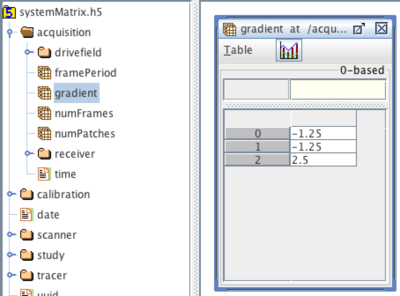

Tobias Knopp is a professor for Biomedical Imaging at the Section for Biomedical Imaging at the University Medical Center Hamburg-Eppendorf. He investigates MPI since 2007 with a special focus on image reconstruction and sequence development. Tobias Knopp is Editor-in-Chief of the International Journal on Magnetic Particle Imaging (IJMPI) since 2015.
Tobias Kluth
Center for Industrial Mathematics, University of Bremen
Finding sufficiently accurate models for the forward operator in MPI is still an open problem. The behavior of various components in the signal acquisition chain makes modeling MPI a challenging task. We consider the problem of mathematical modeling the signal generation in MPI. For proper modeling it is necessary to take the different components (applied field, analog filter, particle's magnetic moment dynamics, etc.) into account and to discuss potential model errors. Physical models for the dynamic behavior of the particle's magnetic moment (Brownian/Néel rotation) and their influence on the MPI signal are considered in this tutorial.

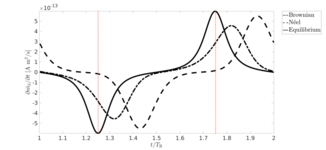

Tobias Kluth is a postdoc at the Center for Industrial Mathematics (ZeTeM), University of Bremen. He studied Industrial Mathematics focusing on nonlinear inverse problems and electrical impedance tomography. In 2015 he did his PhD in computer science related to neuroscience addressing aspects of neural information processing in the human visual system. Since 2016 he is a postdoc at ZeTeM working on inverse problems in the context of MPI. His major research interests include mathematical modeling of MPI with a strong focus on image reconstruction.
This tutorial will present some aspects of 3D rapid prototyping technologies that can enhance your MPI research and speed up your system development. We will focus on the usage of iterative prototype development, structural parts, imaging phantoms, and coil frames. As 3D prototyping has a lot of very geometry specific properties and a large amount of different parameter settings, beginning is a log way via try and error. With this introduction we will make you ready for starting with 3D prototyping within your own lab.
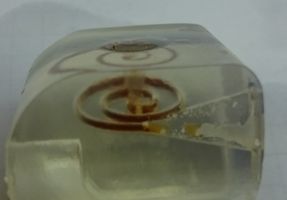

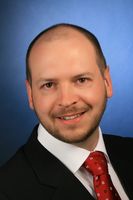
Thomas Friedrich studied physics at the University of Bayreuth. He did his PhD on magneto hydrodynamics in the department of physics in Bayreuth. As a postdoctoral researcher he joined the institute of medical engineering at the university of Lübeck, where he is working on magnetic particle imaging until today. Besides of using rapid prototyping for the development of MPI imaging hardware and phantoms, he also observes the technological development of “3D printing” with great enthusiasm. This enthusiasm combined with three years of experience in 3D printing will be shared with the participants of the tutorial.

Matthias Gräser studied electrical engineering and mechatronics at the Karlsruhe Institute of Technology. After his exam he joined the research team of the institute of medical engineering at the University of Lübeck and worked on Magnetic Particle Imaging and Spectroscopy where he finished his PHD in 2016. Within this time he developed new hardware concepts for field generators, receivers and the analog signal processing. One key feature that pushed the research in MPI is rapid prototyping. In this context Matthias Gräser gained experience with various 3D printing technologies including SLS, FDM and STL. Since 2017 he works as postdoctoral researcher at the University Medical Center Hamburg-Eppendorf.
The Lab-Visit will take place on Saturday, March 24 from 13:30.
At Saturday afternoon after the official program of the IWMPI the MPI research group at the UKE offers a lab visit for interested conference participants. The lab visit will give an overview about the local research activities and has a special focus on presenting tools that are necessary in a preclinical research environment. The demonstration includes a live-demonstration and describes the workflow for bimodal MRI-MPI imaging sessions. In addition customizations of the MPI scanner including a tailored mouse-body coil and an online reconstruction platform are demonstrated.

